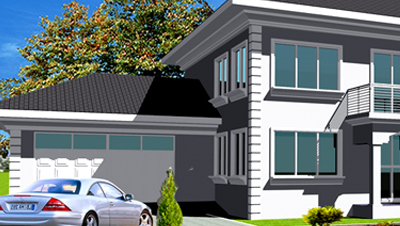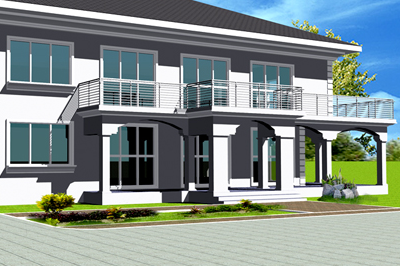With the American housing market just beginning to rebound from inflated property values and a subsequent crash, the question on many people’s mind is, “will the rapidly increasing Ghana real estate prices experience a similar burst in the near future?” To answer this question, we must look at some of the economic factors that influence real estate prices.
Microeconomic Factors
The personal income level of Ghanaians has risen enough recently that the country’s socioeconomic status has been upgraded from low-income to lower middle-income. Many residents who couldn’t afford a home of their own in the past now can. The demand for existing homes is high; but the supply is low. The 2000 Population and Housing Census estimates 2.3 million new homes will be built by 2025 to keep up with the demand.Macroeconomic Factors
The construction of new homes helped to boost the GDP of Ghana by 14.4 percent in 2011. By comparison, the Bureau of Economic Analysis reports that the United States GDP slowed in 2011, increasing by only 1.8 percent.Other factors that influence housing prices include:
- Demographic trends
- Urbanization
- Increases in credit
- International interest rates
- International demand
Improved access to low-interest mortgages has also made real estate in Ghana a desirable to foreign investors. Even if large global economies such as America were to experience another recession, Ghana’s economy is not dependent solely on foreign investments, tourism or other income from those countries.
Outlook
The real estate market in Ghana is expected to remain healthy for years to come. The country has shown exemplary signs of economic growth and political stability over the past 25 years. The demand for housing stems from the country’s own flourishing economy and rising income levels, not international demand. That, in combination with increases in credit, makes the market strong and favorable.Invest in Ghana now! Contact Ghana Homes Group for a free consultation.
















